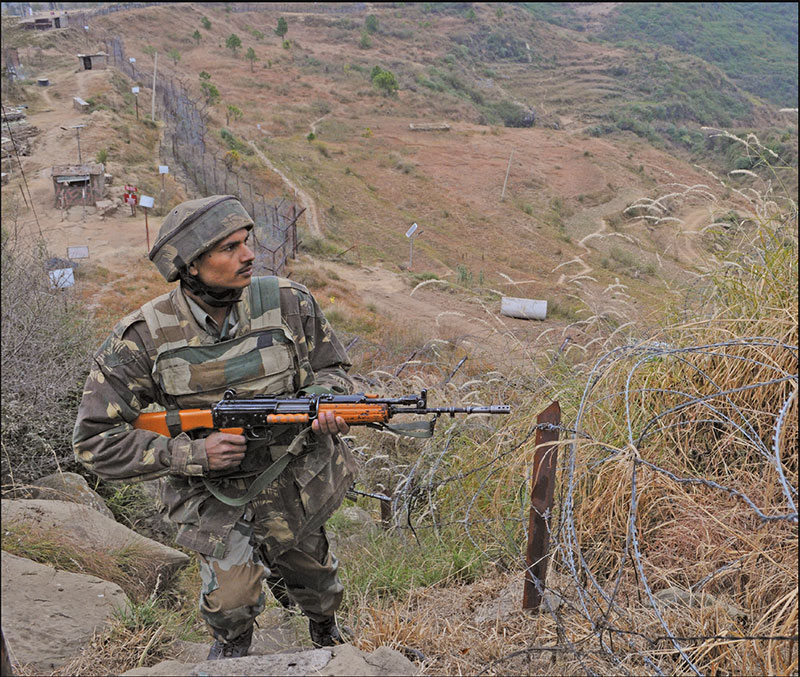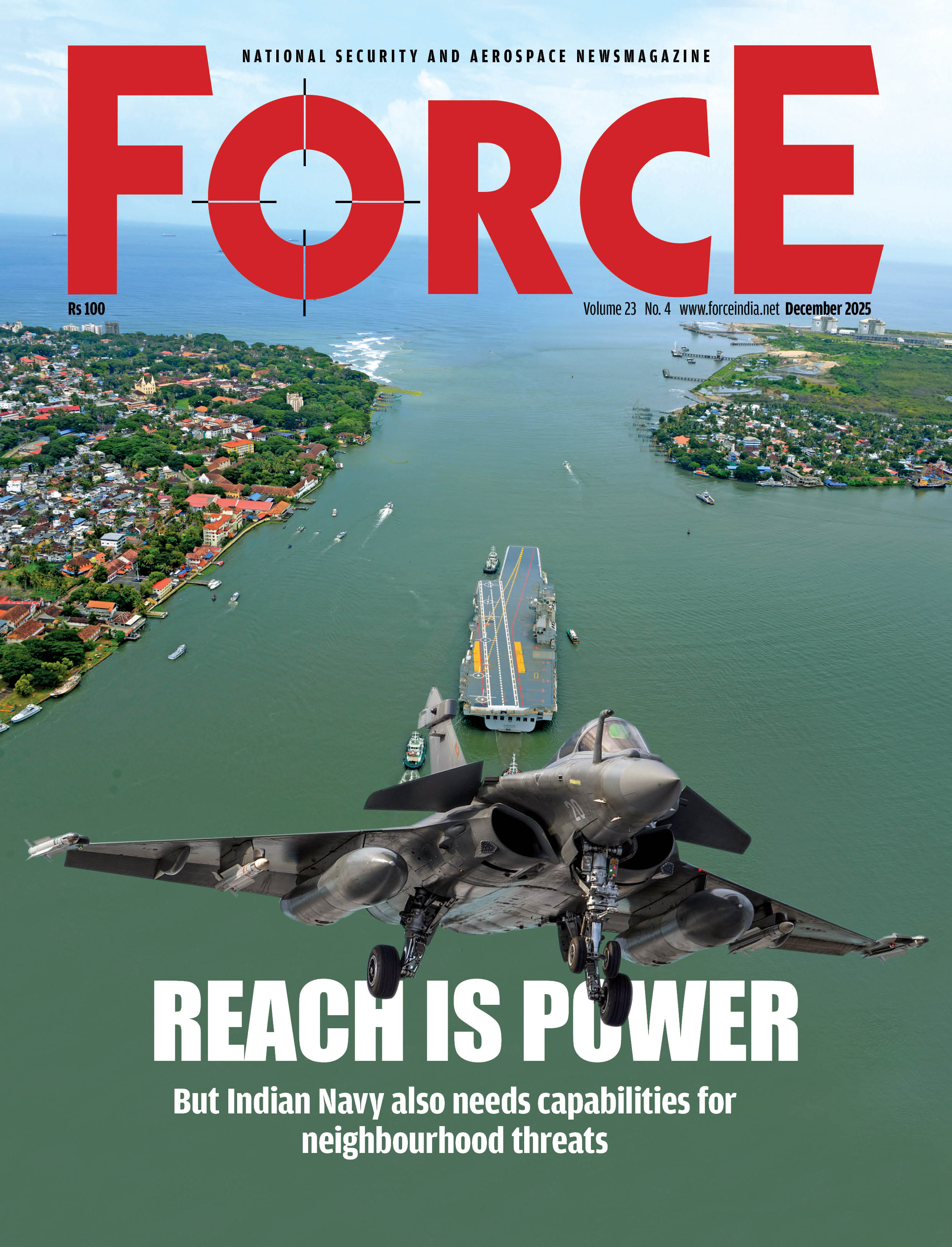In a Limbo
Yunus Dar | New Delhi
In 2009, after none of the vendors cleared the trials for modern bulletproof jackets, the order for 1.86 lakh bulletproof jackets (BPJ) fell through without any result. The jackets were tested on the ability to withstand .30 calibre armour-piercing bullets in a series of tests. It was only in 2018 that the request for more than 1.86 lakh BPJ was accepted under ‘Make in India’ contract, finally paving the way for the army to procure life-saving kit for its soldiers.

Indian soldiers continue to make-do with substandard personnel protection gear
The contract was won by SMPP Pvt Ltd, a small Delhi-based company, which has a Research and Development centre in the Okhla Industrial Area. The company anticipates the complete delivery of all the jackets within three years, and claims the BPJ have ‘Boron Carbide Ceramic’ which is the lightest material for ballistic protection.
The army also signed on for 50,000 BPJ in 2016 as part of an interim emergency purchase. However, these jackets were designed to older specifications and did not meet the modern standards and warfare situations. The army’s overall requirement of more than 3.5 lakh bulletproof jackets fell to deaf ears since, with hardly any major procurement.
In another significant step, the government signed the contract to procure 1,59,000 ballistic helmets for the armed forces, with MKU, an Indian firm which supplies military equipment to NATO and the UN and has a wide export base around the world. For decades, the Indian Army was using obsolete helmets which could offer no protection from bullets and could only protect a soldier from splinters, rocks and a bullet that has ricocheted and grazed the helmet.
1
The soldiers are the most important components in warfare and need the critical protection gear in the battlefie
Subscribe To Force
Fuel Fearless Journalism with Your Yearly Subscription
SUBSCRIBE NOW
We don’t tell you how to do your job…
But we put the environment in which you do your job in perspective, so that when you step out you do so with the complete picture.







